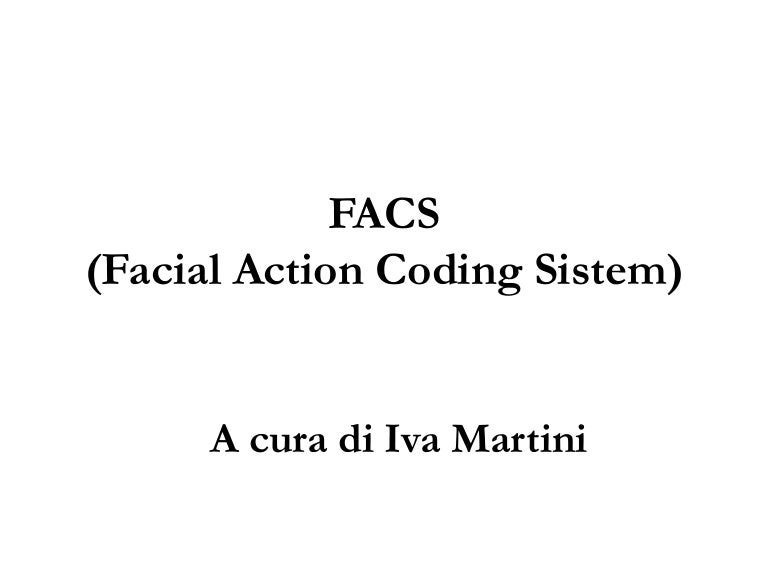Paul Ekman Facial Action Coding System Pdf
The Facial Action Coding System, (FACS), devised by Ekman and Friesen (1978), provides an objective meanS for measuring the facial muscle contractions involved in a facial expression. In this paper, we approach automated facial expression analysis by detecting and classifying facial actions. We generated a database of over 1100. Systems for Coding Facial Expression Ekman and Friesen (1976, 1978) were pioneers in the development of measurement systems for facial expression. Their system, known as the Facial Action Coding System or FACS, was developed based on a discrete emotions theoretical perspective and is designed to measure specific facial muscle movements. When you are Facial Action Coding System 7 fIntroduction to Facial Measurement satisfied that you can make the AU, do it repeatedly and study the effects it has on the surface of your face. If you have difficulty, try making the AU on only one side of your face. If possible, add the action on the other side.
- 25.06.2019
Facial Action Coding System/Investigators Guide Part 1/6701 by Paul Ekman
Facial expression is widely used to evaluate emotional impairment in neuropsychiatric disorders. Unlike facial expression ratings based on categorization of expressions into prototypical emotions happiness, sadness, anger, fear, disgust, etc. However, FACS rating requires extensive training, and is time consuming and subjective thus prone to bias.
Paul Ekman
The Facial Action Coding System FACS is an internationally recognized, sophisticated research tool that precisely measures the entire spectrum of human facial expressions. FACS has elucidated the physiological presence of emotion with very high levels of reliability. Created in the s by psychologists Paul Ekman and Wallace V. Friesen FACS provides a comprehensive taxonomy of human facial expressions. FACS remains the most widely used and acclaimed method for coding the minutest movements of the human face. The system dissects observed expressions by determining how facial muscle contractions alter appearance.
Traditionally a manual coding system , which quantifies all possible movements a person can make with his or her face. Recent advances in computer vision have allowed for reliable automated facial action coding. Below you can see the 20 Action Units offered in the most recent version of FaceReader as well as some frequently occurring or difficult action unit combinations. Some images have been zoomed in on the area of interest to explicitly show what muscle movement corresponds to the specific Facial Action Unit. Traditionally a very time-consuming task, reliable action unit coding is automated using FaceReader. Contributes to the emotions sadness, surprise, and fear, and to the affective attitude interest. Muscular basis: frontalis pars medialis.

The FACS as we know it today was first published in , but was substantially updated in Using FACS, we are able to determine the displayed emotion of a participant. This analysis of facial expressions is one of very few techniques available for assessing emotions in real-time fEMG is another option. Other measures, such as interviews and psychometric tests, must be completed after a stimulus has been presented. Researchers have for a long time been limited to manually coding video recordings of participants according to the action units described by the FACS.
Navigation menu
New facial expressions uncovered
FACS is used across many different personal and professional settings. It is often used in various scientific settings for research. It is also used by animators and computer scientists interested in facial recognition. FACS may also enable greater awareness and sensitivity to subtle facial behaviors. Such skills are useful for psychotherapists, interviewers, and anyone working in communications. It also describes how AUs appear in combinations. The Paul Ekman Group offers the manual for sale.
 Falling into you jasinda wilder read online
Falling into you jasinda wilder read onlinePaul Ekman Facial Expressions
